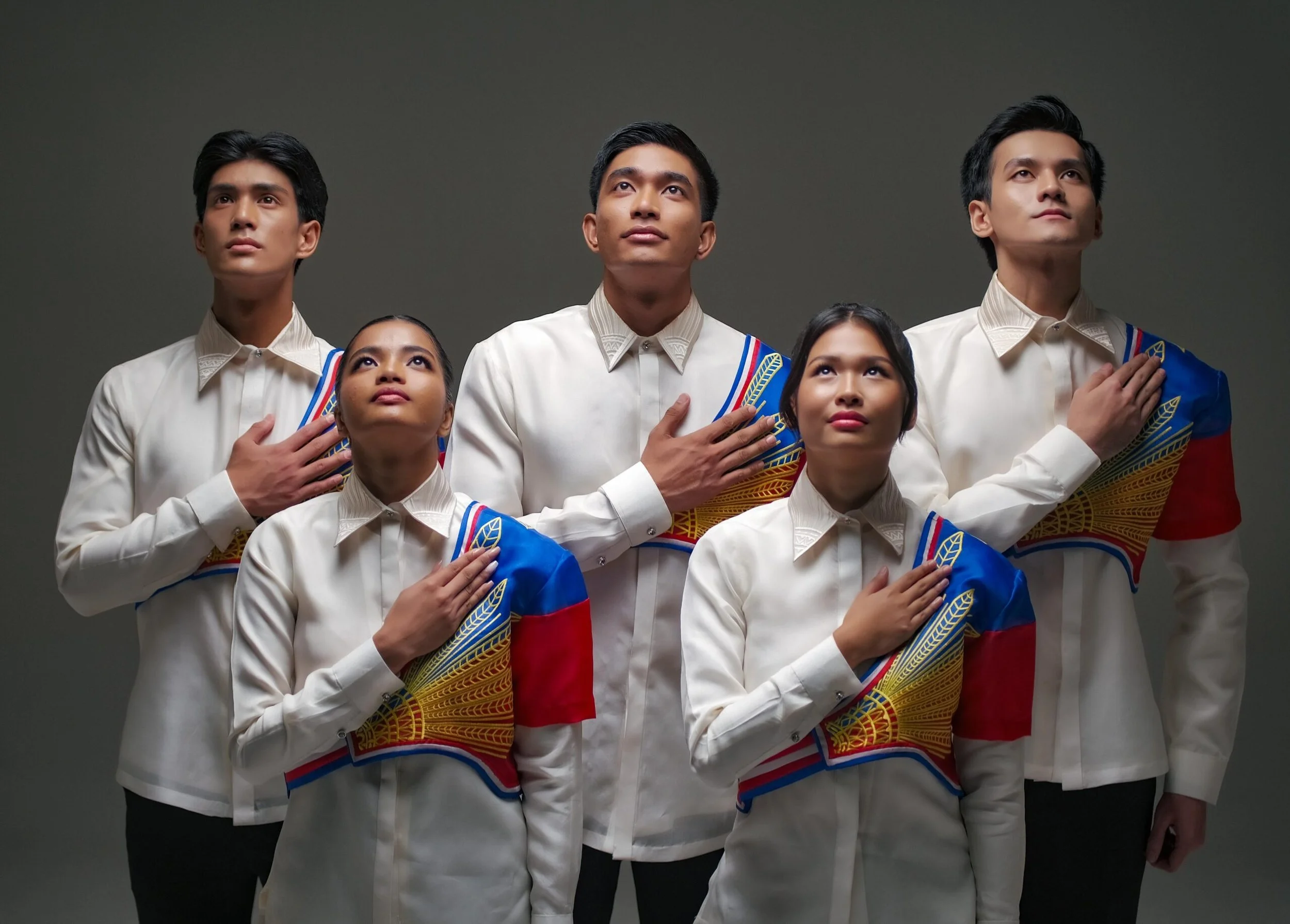Francis Libiran Brings Filipino Glamour to Toronto’s Mabuhay Festival
From Olympic uniforms to Hollywood red carpets, the Filipino designer’s return to Toronto highlights how fashion can remain defined by both culture and community.
Courtesy photo.
When Francis Libiran takes the stage at Nathan Phillips Square this weekend for the Mabuhay Philippines Festival, it will mark a triumphant return nearly a decade in the making. The acclaimed Filipino fashion designer, whose creations have been donned by the likes of Gwen Stefani, Priyanka Chopra, and countless Miss Universe winners, last showed his work in Toronto in 2016.
“It’s been almost 10 years,” he said. “It’s nice to be back presenting my new collection to friends I met a long time ago and the community, which has changed a lot. There’s more of a younger generation interested now, and I want to appeal to them.”
This year’s collection is a celebration of both craft and culture. Or more simply, as Libiran puts it, “It’s about glamour.” It highlights the embroidery, patterns and fabrics local to and inspired by the Philippines.
Libiran’s background in architecture is evident in his design language. Before he broke into the fashion world, he trained as an architect, and those linear foundations remain at the heart of his work. “I start with a line when I’m designing,” he explained. “It transforms into art deco, linear patterns are translated into embroidery, cut-outs, beading.” The results are garments that feel at once structured and fluid, rich in detail but accessible to the wearer. This collection’s floor-length gowns, for instance, are remarkably weightless, creamsicle-coloured, but profoundly detailed. The show-stopper is a bleeding red stunner of a gown, complete with a large scarlet veil, and aptly dubbed “The Bride from Hell.” All around, Libiran’s architectural background and love of art deco is evident. (And is why, on another note, he’ll also be dropping his own furniture line by the end of the year, replete with curtains and carpets. Stay tuned.)
“I love lines, I love craftsmanship,” he says, giddy. He also loves other artisans, having taken regular inspiration from all over the world—including Pakistan, where he notes he’s often trolled the markets for garments, and had them shipped back to him in the Philippines.
In fact, his designs have found quite a home on the world stage. Earlier this year, Libiran created Team Philippines’ official uniforms for the 2024 Paris Olympics, a high-stakes project that placed his work under intense public scrutiny. “The first time I announced it, people were sending me private messages saying, ‘Francis, please do good. You’re representing us, please make us proud,’” he recalled. “It was a lot of pressure. At first, I received a lot of hate, a lot of criticism. But eventually, the good came, too; international bloggers featured my work as one of the top designs.”
Team Philippines’ official uniforms for the 2024 Paris Olympics. Courtesy photo.
His most cherished moments, however, have little to do with glitz or red carpets. For context: when Libiran was young and growing up in Manila, he feared what his conservative father might say or how he’d react if he discovered his son was into fashion design and, therefore, hint at his sexuality. It didn’t help that all his siblings went into medicine. So, he’d doodle in private, exploring his love for fashion through his mother—the most stylish. That fear of coming out—with his dream, more than anything—is why he originally turned to a career in architecture, but eventually, he could no longer resist the pull of the fashion industry.
Decades later, largely thanks to time and his success, his father has not only come to accept Libiran for all that he is, but his son even designed a special suit for him. Another special memory, just two years ago, saw his entire family gathering together for a surprise party for Libiran at his brother’s home in San Francisco. There, they held a fashion show, modelling all of the clothes Libiran had designed for them throughout the years: for baptisms, for weddings, for so many special occasions.
“I never realized my clothes had such an impact on my family,” he said. “It’s not the big fashion shows that stay with me, it’s me doing something for my people. I will never forget those moments. Although my dad rejected what I wanted early on, that gave me the drive to be here now. We’ve come far.”
But as much as family and community are important to him, Libiran admits that design, for him, is a spiritual act. “It’s very sacred to me,” he said. “When I design something, I always lock myself inside a quiet room. If my house is noisy, which is often because I have 12 dogs, I check into a hotel room so I can have my own space to work alone. I close my eyes and I’m in my own little world.”
He sketches instinctively while talking to clients. “By the time we finish talking, I’m done,” he says, with a distinctively soft laugh. This intimacy can be found, too, in his team, who he’s worked with for decades; his seamstress has been by his side for 20 years.
“Sometimes, during our Christmas parties, you can hear my staff saying, like, ‘Sir Francis, through you, my daughter has become a nurse, my son is a lawyer.’ And I’m like, ‘Oh my God, I’m so old,’” he joked.
Or, one might say, wizened. The designer often reminisces on what it looks like to pave the way for others. “I want younger Filipino designers to see that they can make it,” he said. “I started with a dream, and I worked on that dream on a daily basis. I had to be fearless. I want young designers to know that you can do it, you just need to stay passionate. You have to be brave, you have to face your parents and tell them, ‘This is what I want.’ That’s what I did. You know, my dad wanted me to be a physical therapist. I could never see myself in white, in uniform; that is not fashion,” he says with a laugh.
For Toronto’s Filipino community, his show at the Mabuhay Festival is more than a homecoming. It’s a chance to celebrate a designer who embodies the marriage of heritage and modernity, local tradition and international success. For Libiran, it’s about giving back, and reminding others—especially young, aspiring designers—that being fearless can lead to creating not only unique garments but lasting cultural impact.


